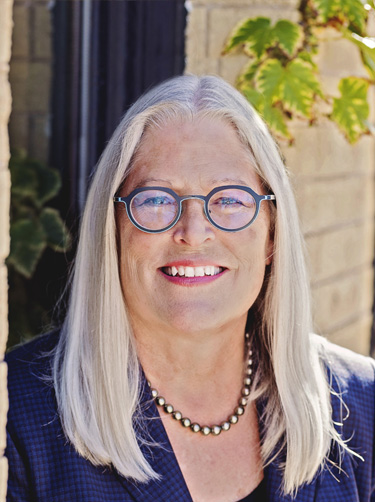
State Bar of Wisconsin President Margaret Hickey
Is the use of videoconferencing an access-to-justice issue? I ask this after talking with attorneys statewide about effects of the pandemic. Although videoconferencing might be impersonal and cumbersome for contested hearings, it generally has been a benefit for shorter hearings that take place as a case proceeds.
Lawyers in many practice areas have asked why we cannot continue videoconferencing for hearings, such as status and scheduling conferences, or perhaps initial appearances. Many counties still use videoconferencing for these hearings, but other counties require in-person appearances. Why?
For many attorneys, travel takes more time than hearings themselves, and lawyers with hourly fee structures charge clients for travel time. One attorney reported that he traveled 90 minutes each way, in part due to traffic, to a Pretrial the day before the trial. The hearing lasted 3-5 minutes, and he had to charge the client over three hours for what could have been a short video conference. Attorneys with disabilities also report the difficulty that short, in-person appearances cause them compared to videoconferencing. An attorney who uses a wheelchair has asked why he needs to appear for short hearings given the difficulty of traveling for such appearances.
A younger attorney told me that she no longer accepts court appointments for public defender cases in some parts of the state where courts no longer allow videoconference appearances. It was efficient and cost effective for her to handle these cases from a distance and except for in person contested hearings. However, judges are now requiring that she appear in person for all hearings, and she cannot afford to do this. We have a shortage of attorneys in many Wisconsin counties. Anything the court system can do to encourage lawyers to take these cases and do so efficiently improves the system and access to justice.
Videoconferencing increases access to justice for litigants also. I have heard anecdotally that more parties appeared and there were fewer defaults when we were 100% videoconferencing. I have seen clients appear from their truck cabs or from the street outside their workplaces. Having clients present for hearings is the best result for the court system.
I believe that using videoconferences for short matters is an access-to-justice issue. I hope that litigants and courts will use videoconferences as the default for short hearings to facilitate cases and permit parties and counsel to appear virtually.

